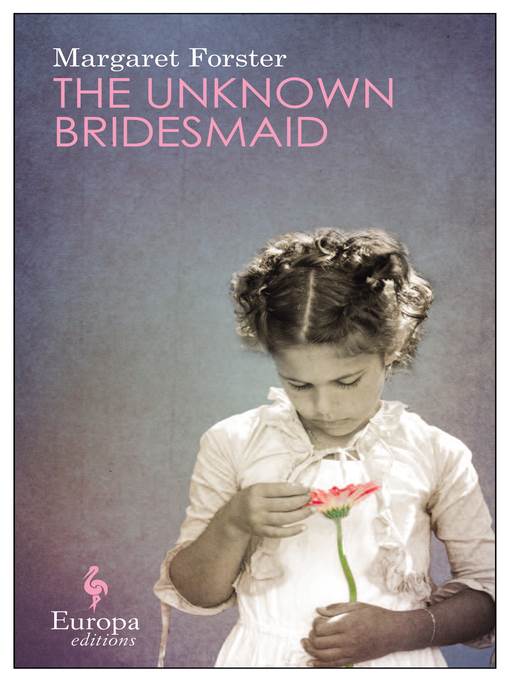
The Unknown Bridesmaid
کتاب های مرتبط
- اطلاعات
- نقد و بررسی
- دیدگاه کاربران
نقد و بررسی

October 13, 2014
With integrity and insight, Forster (Georgy Girl) portrays a London child psychologist whose painful past won't let her go. Julia learned early in life from her mother, who never shared the mystery of her absent father, that secrecy is a helpful "policy of self-protection." So lying came easily for young Julia when adults questioned her about a fateful, terrible afternoon. Julia's story begins as an eight-year-old bridesmaid for her cousin, Iris, whose joy was shortlived with her new husband. Happiness returns to the family when Iris becomes a mother. Entrusted with Iris's newborn, Julia secretly takes the baby for a forbidden walk, but the pram tips on its side by accident. Julia never divulges her secret walk, setting in motion the guilt that will define much of her life. More unhappiness is to come, and by high school, Julia is miserable, living with Iris's young family; she becomes adept at lying, cheating, stealing, and terrorizing them. Julia leaves for college, severing ties with her relatives. Years pass, and Julia becomes well-known for her work with troubled girlsâdialogue from her patient sessions alternates with scenes of her childhood. Julia's youthful indiscretions do not hold her back professionally, yet she longs for forgiveness. In the end, a stranger inadvertently provides the impetus, leading to a life-changing decision. Forster's complicated portrait is affecting and memorable.

August 15, 2014
In this dark, disquieting novel, veteran British writer Forster (Isa & May, 2011, etc.) toggles back and forth in time to explore the enduring effects of guilt on a child psychologist whose own difficult youth casts an unshakeable shadow across her adult life. Julia spends her days interviewing troubled children in her clinic, trying to tease out the truth in conflicting stories and the root causes of problematic behavior, but in fact, she understands these children more than anyone may be aware. Though she appears to others a model of maturity-a hard worker, a homeowner, a newly appointed magistrate-she carries with her the unresolved conflicts, unanswered questions, unshared secrets and unspoken confessions of her own uneasy youth. Julia has followed a path of poor choices, either unable or unwilling to turn back or change course, ever since, at age 8, she was invited to serve as a bridesmaid at the wedding of her beautiful cousin Iris. She has acted cruelly, stolen casually, lied calculatedly, refused to acknowledge kindness and concern-and her actions have taken a toll. But did Julia, as a little girl, kill Iris' baby? And, even as she helps others correct course, will she ever find the resolve to go back and correct her own? These questions underpin Forster's patchwork narrative-and in a sense weigh it down and limit its scope. The accomplished author reaches deep to explore hidden truths and raises issues about resolving past conflicts, but in contending with these topics, somewhat heavy-handedly, she doesn't cover much territory. Thin on plot, the book may be best regarded as a character study carrying lessons about facing one's past, righting one's wrongs and using one's experience to help others. That message alone may resonate with some readers. A carefully considered character study that digs deep to explore the ways the past can shade and shape the present.
COPYRIGHT(2014) Kirkus Reviews, ALL RIGHTS RESERVED.

September 15, 2014
As a girl, Julia asked a lot of questions. Her no-nonsense mother would bat these away, but, once grown, Julia spends her time interviewing girls as a child psychologist. However, there are unanswered questions in her own past, which are unspooled in this tightly paced narrative. From the time Julia has a mishap while taking her cousin's baby on a walk, she engages in a serious of spiteful acts, only sometimes wholly on purpose. Julia's motives are shrouded, even to herself, in a way that rings true even as it gets under your skin. The interplay of Julia's childhood story with her sessions with troubled girls contains searing psychological insight. Readers' reactions will teeter from sympathy to censure during this gripping reminder that childhood is not always the halcyon period it is held out to be but, rather, can contain the seeds of adult tribulations. Forster vividly demonstrates how even our childhood selves can become strangers to us, and even someone who asks a lot of questions may have a hard time finding out the answers.(Reprinted with permission of Booklist, copyright 2014, American Library Association.)

























دیدگاه کاربران